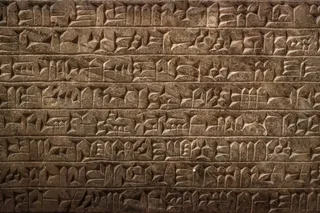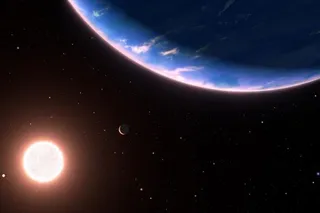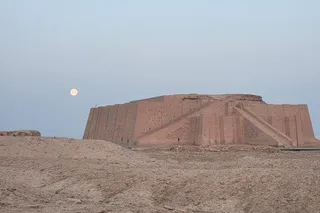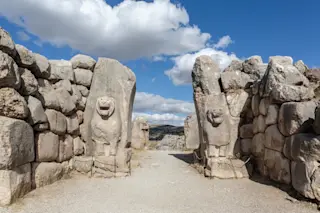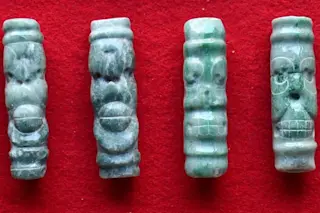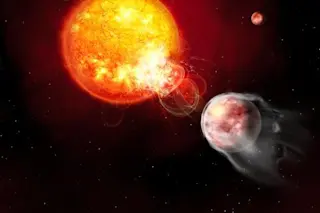Lee Billings has an interesting essay in SEED this month on how extraterrestrials would locate Earth from elsewhere in the universe.
"As the probe approached, gaps in the clouds far below revealed continents scattered amidst a world-girdling ocean. In a vast cosmic desert, this was an oasis. The probe sampled the atmosphere, finding abundant oxygen and traces of methane. Chemistry dictates that the two reactive gases could never coexist for long; something was replenishing them. Analyzing starlight reflected off the land, it saw regions absorbing light at wavelengths corresponding to no known non-biological process. Perhaps this was vegetation. The spacecraft also detected powerful, modulated radio emissions from the surface—almost certainly a sign of substantial technology. There was life on this planet, and at least some of it seemed intelligent."
The probe he's talking about is the 1990 Galileo spacecraft detecting Earth on its way to Jupiter. No mention of any ...



